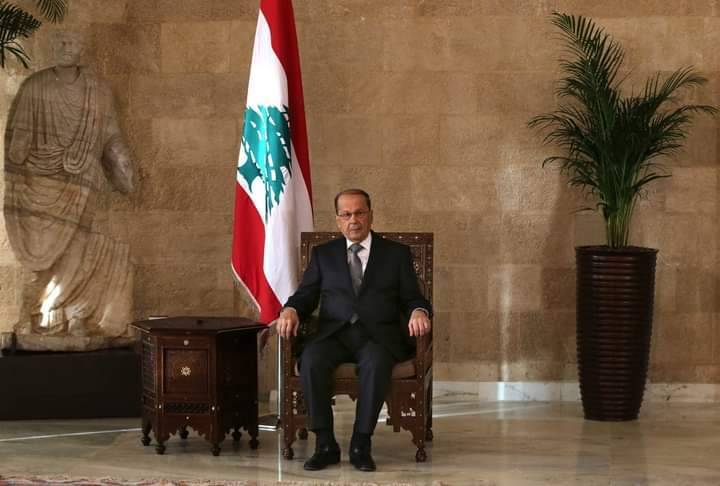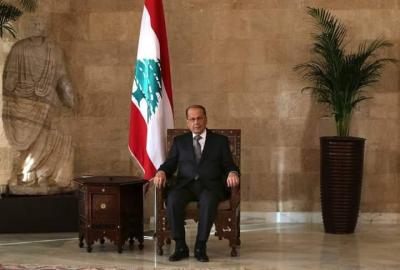A number of lawmakers were surprised when they inquired with the relevant circles in the presidential palace about the reasons behind President Michel Aoun not inviting them to participate in the mandatory parliamentary consultations to name the prime minister tasked with forming the new government. They received the response that there is a constitutional issue that could delay the invitation, related to the fact that the “Shiite duo” and its allies lean towards appointing someone to form the government who lacks constitutional legitimacy, claiming that the Christian blocs in the parliament, regardless of their affiliations, are not inclined to name him.
These lawmakers noted that while the constitution does not impose a time limit on the president to call the lawmakers to mandatory consultations—which also applies to the designated prime minister who is not bound by a timeframe to form the government—the exceptional political circumstances in the country do not allow for maintaining a caretaker government. There is an urgent need to form a fully qualified government to rescue the country, given the local and international consensus that it stands on the brink of collapse.
The lawmakers pointed out to "Asharq Al-Awsat" that Aoun, by conditioning the designated prime minister to have support that, as his political team claims, is constitutionally valid, aims to preempt the mandatory consultations by issuing judgments on intentions on behalf of the parliamentary blocs. This approach forces him into a corner, as he has no right to set conditions on parliamentary will and to pre-empt what these blocs will decide in the consultations.
They confirmed that Aoun has created a new predicament, perhaps to delay inviting the lawmakers to the mandatory consultations, after he gauged the opinions of some parliamentary blocs that refused to assist him in looking for a personality to assign to form the government, which would replace Prime Minister Najib Mikati, who remains the most likely candidate for this position. They viewed that he is allowing his political heir, Gibran Bassil, the head of the “Free Patriotic Movement,” to take charge of the government formation file after facing rejection from Mikati to comply with his conditions.
It is believed that Bassil has started to act as if he is the only option for forming the government, which explains his insistence on conducting consultations in hopes of promoting a parliamentary or an external figure to assume the premiership, taking advantage of the political cover granted to him by Aoun, hoping to impose whoever he nominates as a fait accompli, even though he knows in advance that he faces an impossible task because the “Shiite duo” positions itself politically elsewhere, along with several deputies aligned with the March 8 Alliance.
These lawmakers questioned how Bassil allows himself to plunge the country into a politically reckless adventure. Do they think that local and international circumstances are favorable for imposing their conditions while Aoun prepares to vacate the presidential palace immediately after the expiration of his presidential term on October 31? Especially since he is no longer in a political position that allows him to run the country by the guidelines set by his son-in-law! They also inquired about the source of Aoun's conclusions to claim in advance, albeit through his political team, that there is a constitutional issue if the parliamentary majority wants to name Mikati to form the government? Did he receive input from the majority Christian parliamentary blocs? Or does he wish to treat his parliamentary bloc as the sole legitimate representative of Christians in the parliament?
Aoun's refusal to allow Mikati to form the government, though it was issued by Bassil after losing hope in coercing him to meet his conditions, would lead him into a significant political clash, not only with supporters of the caretaker prime minister but also with Sunni leaders who reject the appropriation of their primary position in the state by Aoun and his son-in-law, especially since they lack the leverage to impose a prime minister at any cost.
In this context, lawmakers conveyed from a prominent parliamentary source that Aoun does not want to cooperate with Mikati, although his consultation of his allies' opinions was not encouraging for him to proceed with his options in response to Bassil's wishes. They mentioned the difficulty of convincing most parliamentary blocs to adopt someone who successfully passed the entrance exam for the premiership during his meeting with Bassil. Therefore, he might be forced to retain the caretaker government, which could lead to a potentially escalating political clash with the international community.
The parliamentary source disclosed to "Asharq Al-Awsat" that the phase following the parliamentary elections has attracted international and Arab interest. This was evident from the movements of the U.S. Ambassador Dorothy Shea and the French Ambassador Anne Grillo towards key political leaders, aiming to understand their approach to this phase and what changes it might bring, particularly concerning the stalled negotiations with the International Monetary Fund, which must be accompanied by the approval of reforms to transition the country to a phase of financial and economic recovery.
He confirmed that the ambassadors conducted exploratory rounds to discover what could be done after the completion of the electoral process based on maintaining stability. According to him, they were informed that there are a set of conditions that must not be overlooked since stability is not limited to security unless it is supported by providing the minimum level of food security. The parliamentary source noted that Ambassadors Shea and Grillo supported the view that maintaining stability would not be ensured with a new government backed by a comprehensive program to stop the collapse, stating that merely having a government to fill the vacuum as a substitute for the caretaker government does not meet the required objective and will neither advance nor delay the country's transition to recovery.
He further pointed out that the leaders who met with Shea and Grillo stressed the necessity of providing conditions for bringing in a capable government, which would not materialize unless Aoun recognizes the need to abandon his stubbornness and defiance that have led the country to a catastrophic crisis. Some of them kept the door open in response to the ambassadors' inquiry about their readiness to participate in a mission government different from previous ones, believing that participation has its conditions, the first of which is not bringing a government subordinate to "Hezbollah" that lacks control over all Lebanese territory.
The leaders firmly rejected forming a government that extends from the current one, and it was reported that Shea and Grillo stated that the new government would work to halt the collapse, and the presidential elections could represent the first milestone for change, and that they must occur at any cost.




